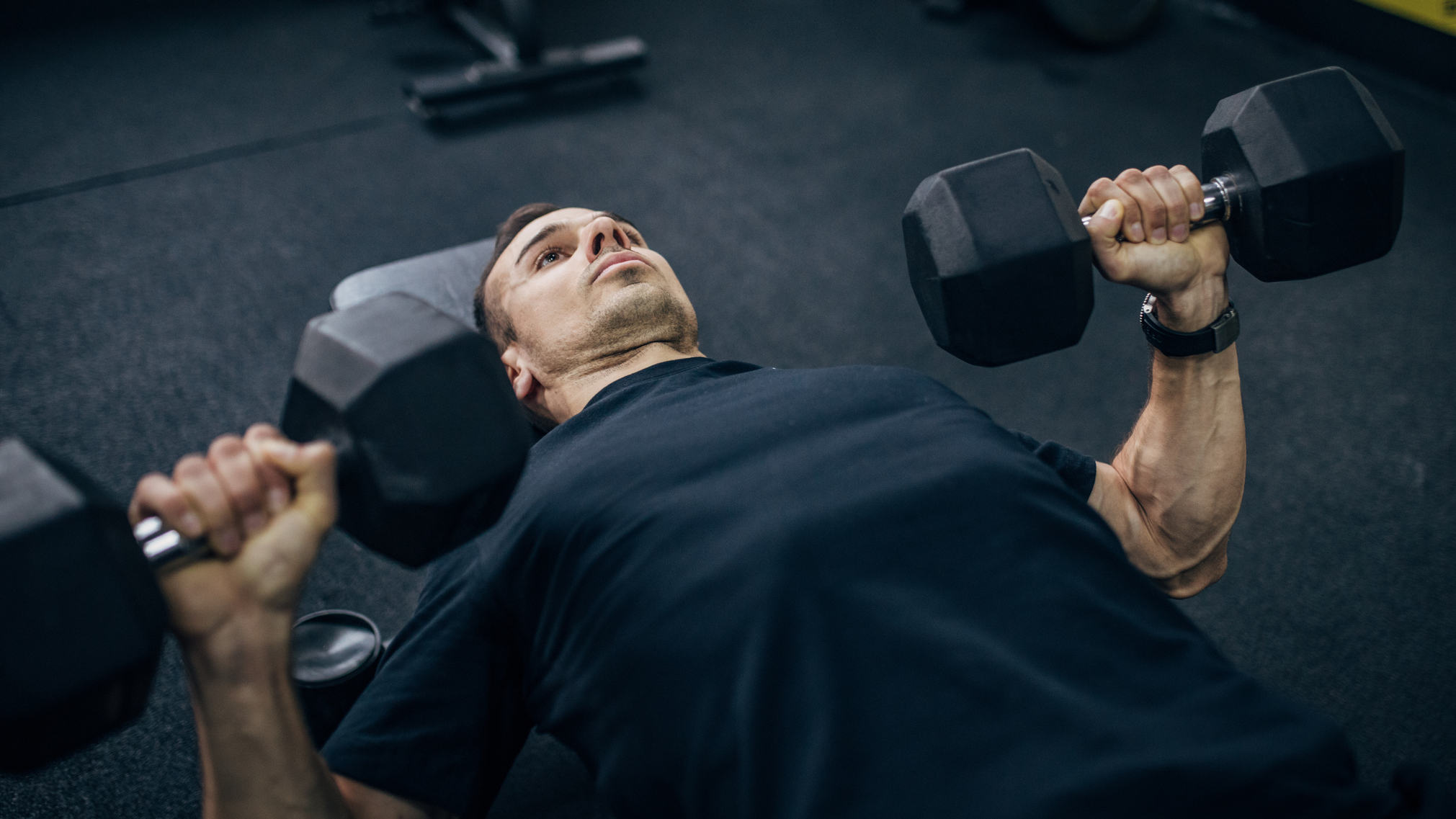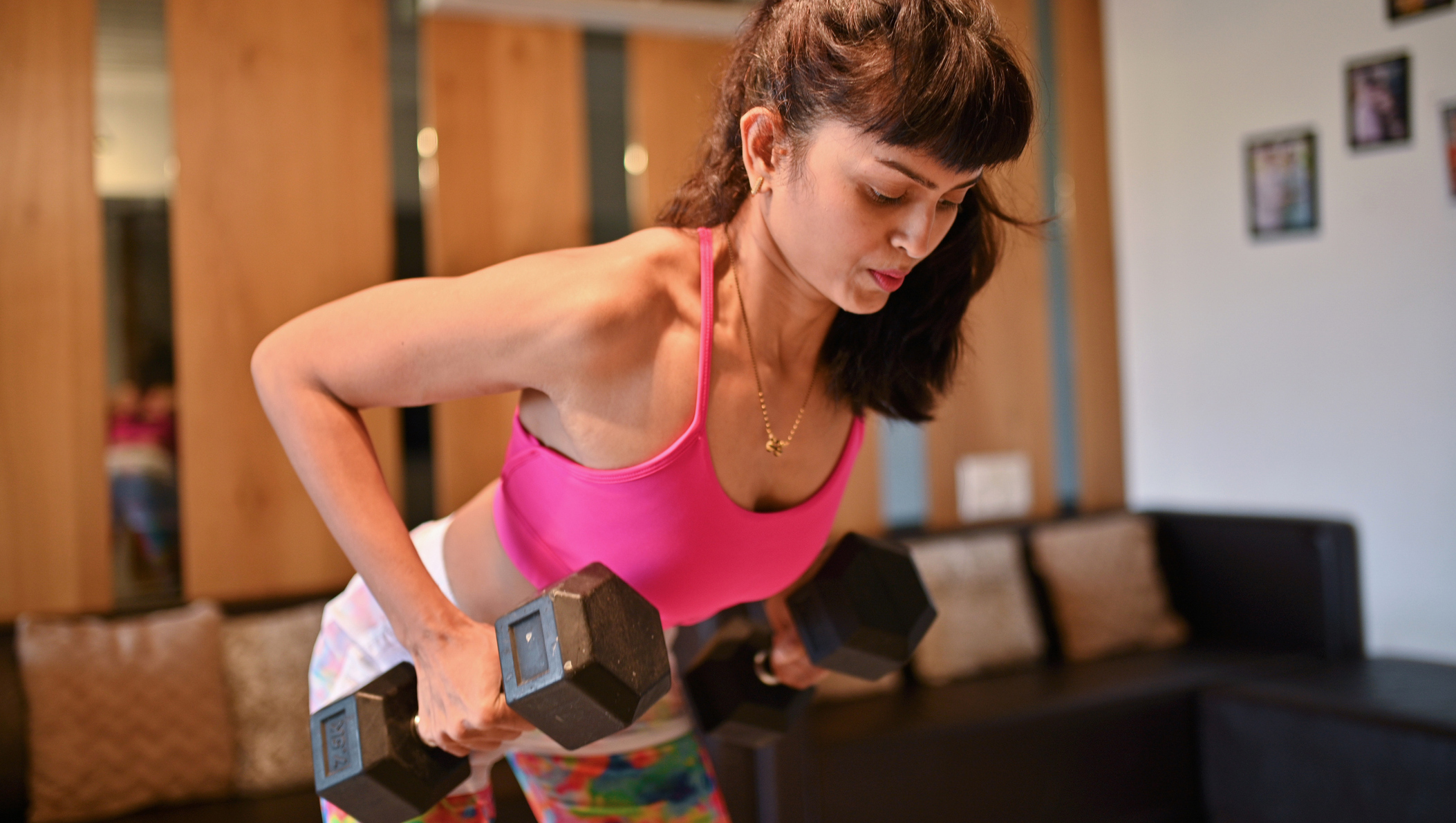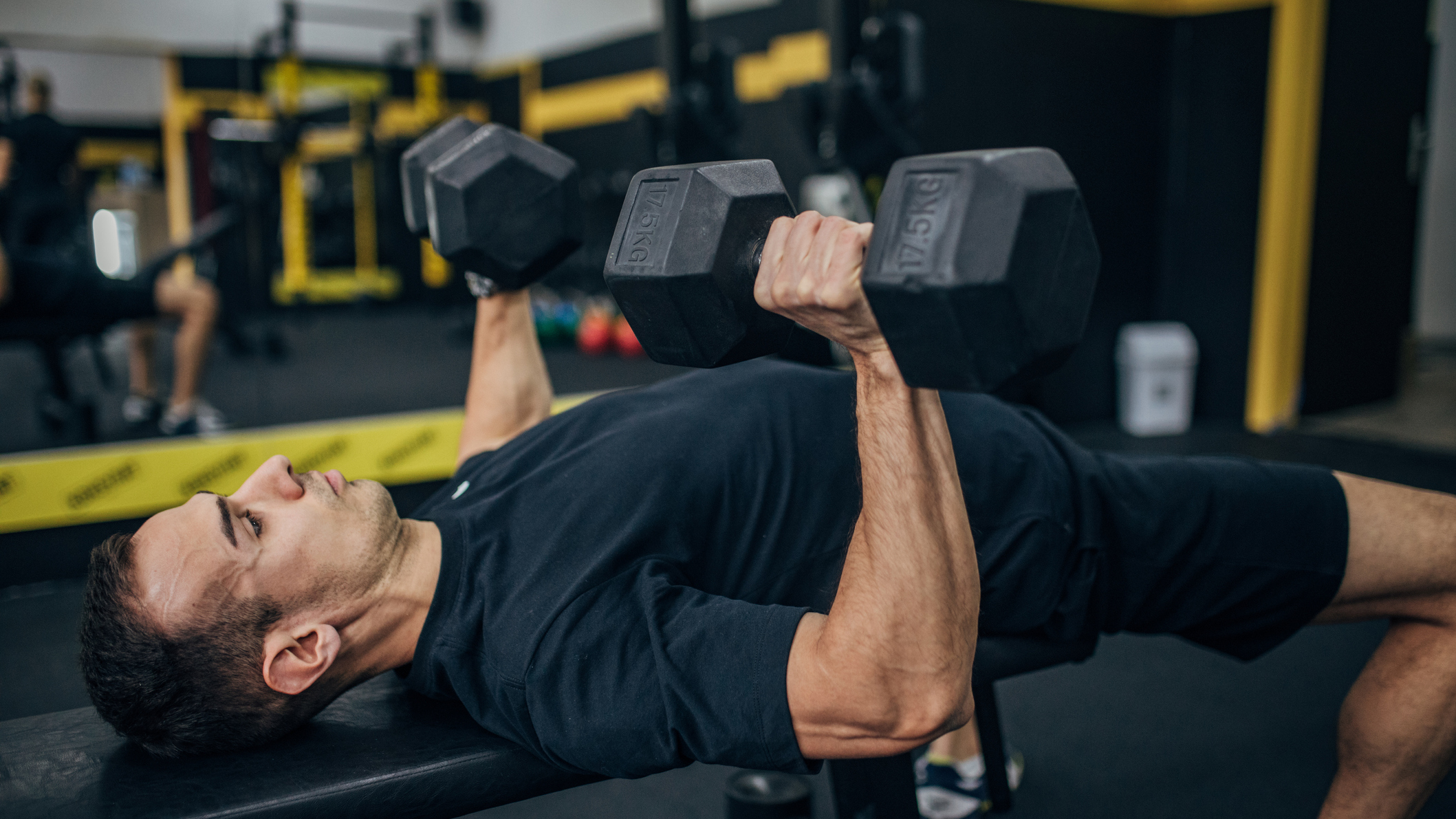
The more time you spend strength training, the harder it can be to find a session that tests your body. Luckily, this dumbbell workout is designed to provide a greater challenge for those who have been lifting for longer—although it’s suitable for any gym-goer.
The workout has been put together by Nick Mitchell, founder of Ultimate Performance, a training company that specializes in body transformation. It uses the principles of tempo training to increase the difficulty of four gym staples: squat, bent-over row, deadlift and bench press. You’ll lower each weight slowly over four seconds before exploding back up.
“Interestingly, those with a greater training age—more experience in the gym, not chronologically older—will find this program more demanding as they are more neurologically efficient, and therefore better able to tap into the high threshold motor units of their muscle cells that are responsible for generating muscular power,” says Mitchell.
In other words, experienced athletes can contract the targeted muscles more efficiently, maintaining good form under heavier loads and fatigue. So they can push harder and get more benefit than fledgling lifters can.
Choosing the right weight is essential, so performing this workout next to a rack of dumbbells at a gym is preferable. “Pick a weight that allows you to hit 10 reps, needing every ounce of strength you have to hit that 10th rep with perfect form,” says Mitchell.
“Ten easy reps just won’t cut it and will fail to generate either the hypertrophic (muscle growth) or metabolic responses we are looking for.”
How To Do This Full-Body Dumbbell Workout
This session is in a circuit format. Complete one set of the first exercise, rest, then one set of the second exercise, rest, and so on until all four exercises are completed. Repeat that sequence four times in total.
The tempo, or speed at which to perform each phase of the exercise is given in a four-digit format. So, for example, 4010 means you should take four seconds to perform the eccentric (lowering) portion of the lift before immediately starting a one-second concentric (lifting) phase because zero refers to rest.
Make sure you warm up before getting started—this warm-up routine is great for gym workouts. You can also practice each of the movements with lighter dumbbells to perfect your form before you begin.
1 Dumbbell squat

Sets 4 Reps 10 Tempo 4010 Rest 60sec
Stand with your feet hip-width apart, holding dumbbells by your sides. Keeping your spine neutral, core braced and your shoulders up, push your hips back and bend your knees to lower slowly until your thighs are parallel to the floor. Then drive through your heels to push yourself back to the starting position.
2 Dumbbell bent-over row

Sets 4 Reps 10 Tempo 4010 Rest 60sec
Stand with your feet slightly wider than hip-width apart, holding dumbbells by your sides. Hinge forward until your torso is close to parallel with the floor. Powerfully pull the dumbbells toward your body, driving your elbows past your torso while retracting the shoulder blades, until the dumbbells are level with your bellybutton. Slowly lower the weights back to the starting position over four seconds to complete the rep.
3 Dumbbell Romanian deadlift

Sets 4 Reps 10 Tempo 4010 Rest 60sec
Stand with your feet shoulder-width apart and a slight bend in your knees, holding dumbbells in front of you with palms facing your thighs. Keeping your spine neutral, hinge forward at your hips and bend your knees to lower the dumbbells slowly down your legs until your torso is almost parallel with the floor. Squeeze your glutes and drive through your feet to stand up straight without changing the shape of your back.
4 Dumbbell bench press

Sets 4 Reps 10 Tempo 4010 Rest 2min
Sit on the edge of a bench with your feet wider than hip-width apart and planted on the floor. Grip each dumbbell and then squeeze your shoulder blades together. Kick one knee up at a time to drive the dumbbells to your shoulders, then lie on the bench. Extend your arms so both dumbbells are above your chest. Squeeze your shoulder blades and slowly lower the dumbbells to your chest until your upper arm is parallel to the floor, or the weights come to chest height. Keep your elbows beneath your wrists at all times. Then drive the dumbbells up and into the starting position.







